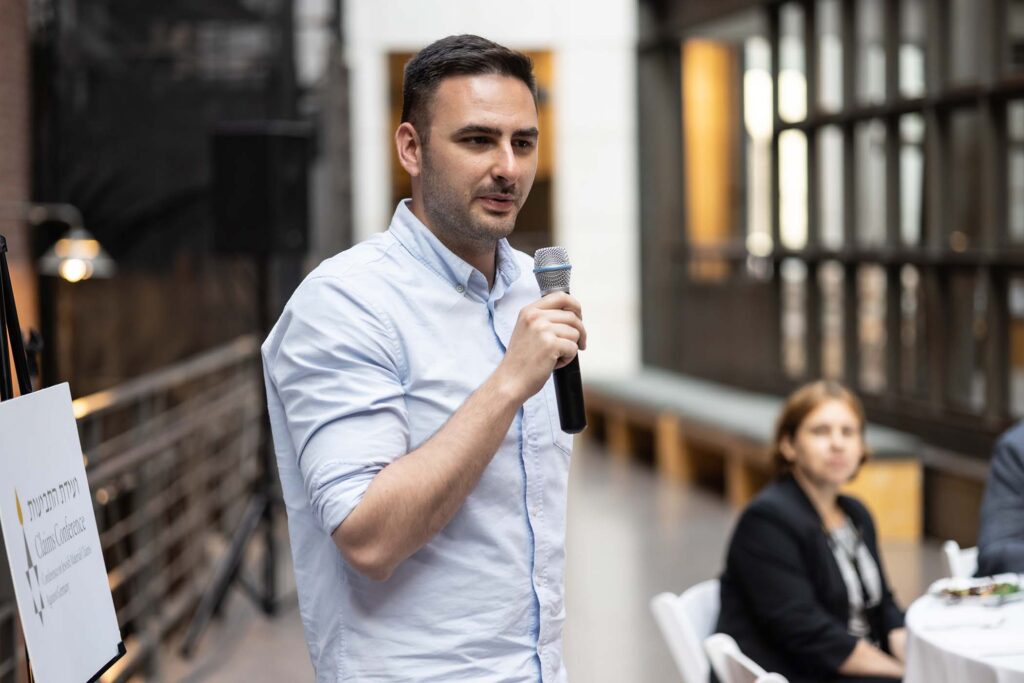
Eligibility
To be eligible for the Saul Kagan Fellowship in Advanced Shoah Studies, a candidate must be connected to a university or institution that supports their research of the Holocaust. Eligible disciplines are those in which serious research will make the greatest contribution to future knowledge and understanding of the Holocaust, including but not limited to work in the fields of Anthropology, Cultural Studies, Jewish Studies, History, Political Science, Philosophy, Religion, Sociology, and Women’s Studies.
Applicants must be able to focus on their research without having external commitments, such as full-time employment. Those teaching a course as part of their university requirements may apply. In selecting fellows, the Fellowship Academic Committee will evaluate both the candidate and the ability of the candidate’s chosen institution to train Holocaust scholars.
A Kagan Fellowship award is a maximum of $30,000. Once accepted into the Kagan Fellowship, there is an opportunity to renew the fellowship for a second consecutive year, subject to the Academic Committee’s approval.
A candidate who has applied or is applying for any outside award funding should feel free to apply to the Kagan Fellowship. However, a candidate who is already confirmed to receive above $25,000 in outside/other funding (this excludes tuition grants) for the Kagan Fellowship funding year for which he/she is applying would not be eligible to apply. (See below for more details.) A candidate who is already confirmed to be receiving less than $25,000 in other funding for the funding year for which he/she is applying is eligible to apply. Candidates who are receiving scholarships/awards for tuition or travel are eligible to apply.
Any funding you are receiving while applying for the Kagan Fellowship does not reflect on your eligibility, so feel free to apply, regardless of your current funding amount.
Please contact Dr. Joanna Sliwa at Joanna.Sliwa@claimscon.org with any questions.
Program Requirements
- To be enrolled and in good standing in a post-doctoral program that is focused on or supports the study of the Holocaust.
- To be able to focus on the research without external commitments, such as employment. Those teaching a course as part of their post-doc requirement may apply.
- Candidates should have received their Ph.D. within the last five years of applying for the Kagan Fellowship and be connected to a university or research institution.
- To commit to full-time employment primarily in Holocaust Studies on an academic level for a minimum of five years after completing the post-doctorate.
- To attend and present their research at an annual summer week-long conference. There is no residency requirement other than the summer conference.
Kagan awards cannot be used toward tuition costs.
A Kagan Fellow may receive up to $6,500 in outside funding during the Kagan Fellowship funding year without any decrease in his/her award. If a candidate receives more than $6,500 in outside funding, this may result in a decrease in his/her award. Other awards/scholarships that go towards tuition costs are NOT counted as ‘outside/other funding’ and would not result in any Kagan award decrease. Salary of part-time employment must be pre-approved and may be counted as ‘outside funding.’
The Claims Conference reserves the right to rescind the Kagan award, should a Kagan Fellow accept outside funding (excludes tuition scholarships) over $25,000.
Please note: For those candidates just finishing their PhD, you must have completed ALL your PhD requirements, including that of defending your thesis, BEFORE the application deadline. Those who cannot provide a letter or certificate of PhD completion by the application deadline are not eligible to apply.
Instructions
The application process is through the Fluxx portal system (see previous page for link to application process), and all the instructions are there as to how to complete and upload all documents. You will need to upload into Fluxx:
- General information
- A resume/CV
- A full outline of your PhD dissertation and 1-2 chapters of your work in English (or a summary in English), including the dissertation’s title and a list of works cited.
- A detailed project proposal of your post-doctoral research, including what the outcome would be, and potential sources and methodology used. It should not exceed 10 double-spaced pages.
- Confirmation of PhD completion.
- The Fluxx portal will provide a way for you to request three letters of recommendation and recommendation questionnaires from three references, respectively. One reference must be from an academic advisor who has worked closely with the applicant, and one from a supervisor who is well-acquainted with the applicant and their experience in a professional or volunteer setting. The third reference should be from a university or research institution confirming the support of their work and an agreement to host the candidate.
Optional: A web link or electronic, downloaded video file not more than 6 MB exhibiting the candidate delivering a concise description of his/her research topic. Only the first 90 seconds of the video will be reviewed. Large, time-sensitive files will not be accepted.
Please note: For those candidates just finishing their PhD, you must have completed ALL your PhD requirements, including that of defending your thesis, BEFORE the application deadline. Those who cannot provide a letter or certificate of PhD completion by the application deadline are not eligible to apply.
If you have questions or concerns while completing your application, please contact Dr. Joanna Sliwa at Joanna.Sliwa@claimscon.org.
Awards are usually announced in April/May.
